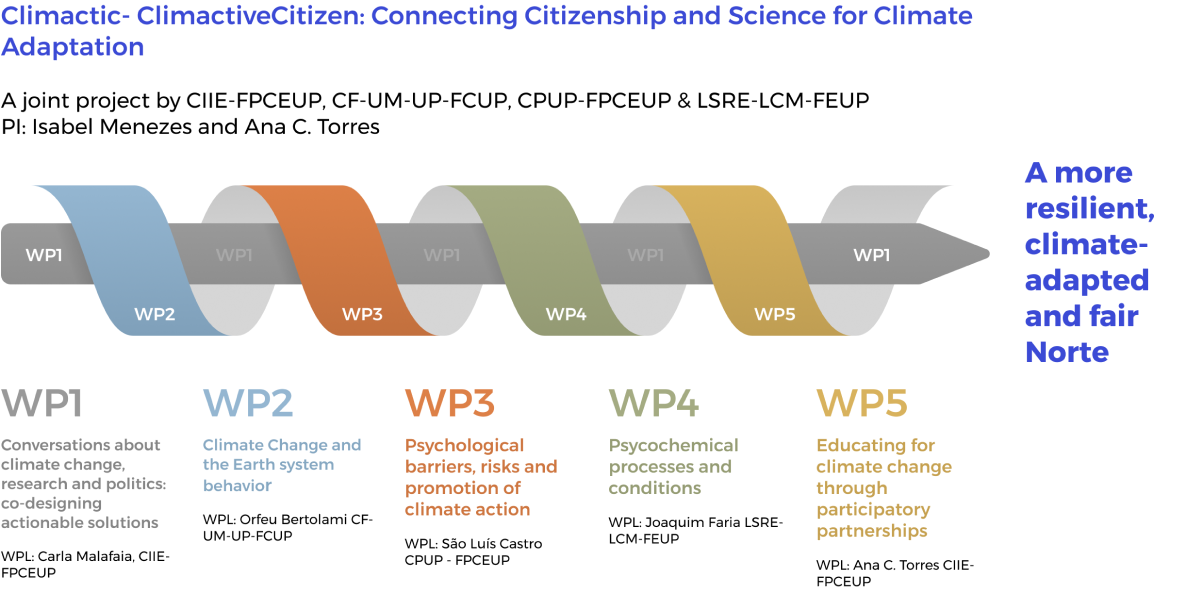Project
ClimActiC: Citizenship for Climate – Building Bridges between Citizenship and Science for Climate Adaptation
What is intended?
– Articulate citizens, science and public policies in the management of adaptation to climate change;
– Deepen knowledge about environmental challenges and processes of behavioral and societal change at the local level;
– Create and encourage spaces for communication and co-creation between scientists, young people, activists, economic agents and policy makers;
– Produce recommendations for a more resilient and adapted North region.

The ClimActiC Project started on 1-7-2021 and will last for 24 months.
How?

Dialogues on climate change, research and policy: citizens, researchers, economic actors, activists and policy makers co-designing actionable solutions
Monitor the project's research and intervention activities;
Promote the transfer of knowledge and experiences on climate change between different social actors;
Identify the conditions for a co-production of transformative knowledge with a view to adapting to climate change;
Develop a strategy for co-designing and co-creating actionable solutions and recommendations.

Climate change and Earth system behavior: understanding and sharing scientific facts, access to risks, mitigation strategies and resilient societies
Understand and share the scientific facts related to climate change;
Assess the risks linked to climate change and related to damage to the behavior of the Earth System;
Designing mitigation strategies and resilient societies, in the context of which sustainable development is possible.

Climate change: psychological barriers, risks and climate action promotion
Identify psychological barriers to climate action;
Assess public understanding of scientific claims and factors leading to climate change denial;
Determine how people assess environmental risks;
Foster environmentally sustainable behaviors.

Study of physico-chemical processes and relevant conditions to promote water availability in the face of climate change
Develop structured catalysts for environmental applications;
Create dedicated portable solar photoreactors for water purification;
Explore the use of carbon-based nanostructured hybrid catalysts to obtain clean water.

Education for climate change: participatory research partnerships between schools and universities
Promote transformative learning about climate change through participatory research curriculum projects;
Stimulating the dispositions and capacities of young people for civic and political action in the context of climate adaptation that strengthens the resilience of their communities;
Develop the skills of teachers on education for climate change.